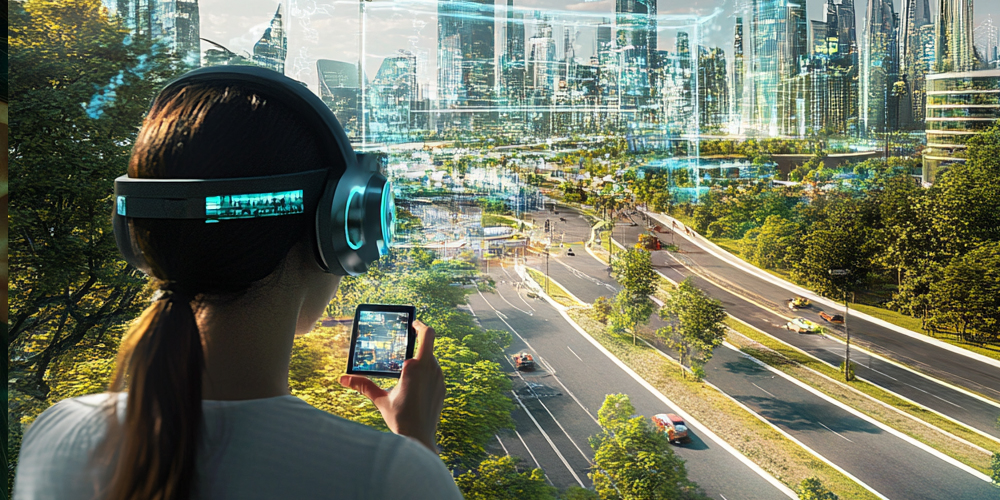1. The Rise of Artificial Intelligence and Generative Models
Artificial intelligence (AI) has already made significant strides in recent years, but 2024 marks a pivotal moment for AI-powered tools. One of the most notable developments in this space is the advancement of generative AI models. These models, such as OpenAI’s GPT-4 and Google’s PaLM 2, can generate human-like text, create art, compose music, and even code.
In 2024, AI models are becoming even more sophisticated. They are learning to understand context better, generate more accurate content, and provide actionable insights that can drive business innovation. These advances will have a profound impact on industries ranging from content creation and marketing to customer service and healthcare.
For example, AI-powered chatbots and virtual assistants will become more intuitive and personalized, offering tailored experiences for users. Similarly, in healthcare, AI models will assist doctors in diagnosing diseases, predicting patient outcomes, and creating personalized treatment plans based on vast amounts of data.
In the world of business, generative AI will continue to transform how products are designed, tested, and marketed. AI-driven automation will streamline processes, improving productivity and reducing operational costs.
2. Quantum Computing: Unlocking New Frontiers
2024 marks a year of remarkable progress in quantum computing. This revolutionary technology promises to solve problems that are currently impossible for classical computers, such as simulating complex molecules for drug discovery or optimizing large-scale logistics networks.
In traditional computing, data is processed in bits, which are either a 0 or a 1. Quantum computing, however, uses quantum bits or qubits, which can exist in multiple states simultaneously. This allows quantum computers to process vast amounts of data exponentially faster than classical machines.
Major tech companies, including IBM, Google, and Microsoft, are investing heavily in quantum computing research and development. In 2024, quantum computers are expected to achieve quantum supremacy—the point where they can solve certain problems faster than the world’s most powerful supercomputers.
While quantum computing is still in its early stages, its potential is vast. It will revolutionize fields such as cryptography, materials science, and artificial intelligence, creating new opportunities for innovation and solving some of humanity’s most pressing challenges.

3. 5G and Beyond: The Connectivity Revolution
The rollout of 5G networks is continuing to expand in 2024, bringing ultra-fast internet speeds and low latency to mobile devices and IoT-enabled gadgets. But 5G is just the beginning. As we move beyond 5G, 6G networks are already being discussed and researched, promising even faster speeds and more reliable connections.
In 2024, 5G technology will enable faster data transmission, making smart cities, autonomous vehicles, and IoT ecosystems more connected and responsive. It will be a game-changer for industries that rely on real-time data processing, such as healthcare, transportation, and manufacturing.
For example, connected vehicles will be able to communicate with each other and traffic infrastructure, improving road safety and traffic flow. In healthcare, telemedicine will become more efficient, with real-time data transmission enabling remote surgeries and diagnostics.
The next generation of connectivity will also help advance virtual reality (VR) and augmented reality (AR) experiences, providing immersive environments with little to no latency. This will create new opportunities in gaming, training, and entertainment.
4. Biotech Innovations: Revolutionizing Healthcare
2024 is set to be a breakthrough year for biotechnology. Advances in genetic engineering, gene editing, and biopharmaceuticals are changing the landscape of healthcare and medical treatments.
One of the most exciting areas of biotechnology is CRISPR gene editing. CRISPR technology enables scientists to modify specific genes within an organism’s DNA, offering the potential to cure genetic disorders and diseases. In 2024, CRISPR is expected to be used more widely in clinical trials and may lead to personalized medicine that targets the root causes of diseases, rather than just managing symptoms.
Additionally, mRNA technology, which gained widespread attention due to its role in COVID-19 vaccines, is being expanded to other diseases, including cancer and autoimmune disorders. This technology holds the promise of creating vaccines and treatments tailored to individual genetic profiles, increasing their effectiveness.
Wearable devices for health monitoring are also evolving. Smartwatches and fitness trackers are becoming more advanced, capable of monitoring vital signs like blood glucose levels, blood pressure, and even detecting early signs of heart disease. This continuous monitoring will help patients and doctors make more informed decisions about health and wellness.
5. Sustainable Energy Solutions
As the world grapples with climate change, sustainable energy solutions are a major focus of technological innovation. In 2024, we can expect significant advancements in renewable energy technologies, especially in solar power, wind energy, and energy storage systems.
Solar panels are becoming more efficient and affordable, thanks to innovations in materials science. Perovskite solar cells, which are cheaper and more efficient than traditional silicon-based cells, are expected to enter the market in 2024, making solar power more accessible to consumers and businesses.
Wind energy is also experiencing growth. Offshore wind farms are becoming more common, harnessing stronger and more consistent winds at sea. Advances in turbine technology are improving efficiency, making wind energy one of the most promising sources of renewable electricity.
Energy storage technologies, such as advanced batteries and hydrogen fuel cells, will play a crucial role in the adoption of renewable energy. These technologies will help store excess energy generated during peak times, ensuring a stable supply of power when demand is high.
The integration of smart grids and IoT technology will further enhance the efficiency of renewable energy systems, allowing for better energy management and consumption.
6. Robotics and Automation: Changing the Workforce
The future of work will be deeply influenced by robotics and automation. In 2024, robots and AI-driven machines will continue to reshape industries like manufacturing, healthcare, logistics, and even retail.
Robotic process automation (RPA) is already improving efficiency in business operations, and its use is expected to grow in 2024. In manufacturing, collaborative robots (cobots) are being deployed to work alongside human employees, performing repetitive tasks while allowing workers to focus on more complex and creative activities.
In healthcare, robots are being used for surgery, rehabilitation, and elderly care. These robots can assist doctors in performing minimally invasive surgeries or help elderly patients with daily tasks, improving quality of life.
Additionally, self-driving delivery robots and autonomous drones will continue to evolve, revolutionizing last-mile delivery and logistics. As these technologies improve, the potential for a more automated, efficient workforce becomes increasingly likely.

7. The Metaverse: Immersive Virtual Worlds
The concept of the metaverse has gained significant attention in recent years, and 2024 is expected to be a pivotal year for its development. The metaverse refers to a virtual, immersive world where users can interact with each other and digital environments in real-time.
In 2024, augmented reality (AR) and virtual reality (VR) technologies will become more advanced, enabling more immersive and realistic experiences. This will drive the growth of the metaverse, allowing people to attend virtual events, play games, socialize, and even work in entirely new ways.
Businesses are also exploring the potential of the metaverse for marketing, advertising, and customer engagement. Virtual stores, showrooms, and digital products will become more common, offering consumers new ways to shop and experience brands.
Conclusion
The technological innovations of 2024 are poised to create profound changes across various industries. AI, quantum computing, biotech, sustainable energy, and robotics are just a few of the fields that will be revolutionized this year. As these technologies advance, they will reshape how we live, work, and interact with the world around us.
While these innovations hold immense potential, they also raise important questions about ethics, privacy, and the future of work. By embracing these changes responsibly, we can ensure that the technologies of 2024 and beyond create a more connected, sustainable, and prosperous future for everyone.




